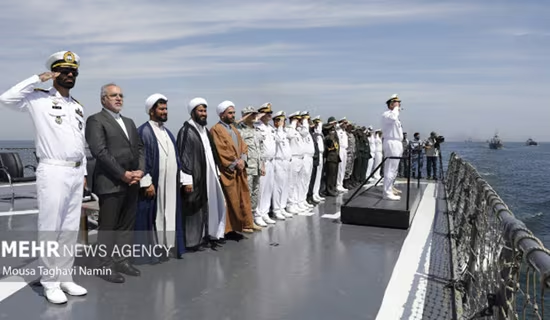On February 4, 2012, the festival of the Prophet's birthday, Hamza Kashgari, a columnist for the Saudi daily Al-Balad, posted comments on Twitter which many in the country perceived as offensive to the Prophet and to Allah. The tweets sparked a media uproar and prompted a harsh response from the Saudi authorities; the country's information minister banned Kashgari from writing in the Saudi press, and the King ordered to issue a warrant for his arrest.[1] Fearing for his life, Kashgari fled to Malaysia, but was arrested and deported back to Saudi Arabia.[2] The affair evoked a debate in the kingdom between those who called to arrest Kashgari and even execute him for heresy, and those who advocated leniency and called to stop the media campaign against him.
The following document reviews the events and some of the reactions in the press:

Saudi journalist Hamza Kashgari[3]
Kashgari: There Are Things about the Prophet that I Hate
Writing on his Twitter account on February 4, Kashgari addressed the Prophet, saying: "On your birthday, I see you everywhere I go. There are things about you I love, there are things I hate, and there are many things I do not understand. On your birthday, I will not bend towards you and I will not kiss your hand. I will shake your hand as an equal, return your smile, and address you as a friend, nothing more." Kashgari wrote further: "Prayer is not a rational act. All the gods we worship, [all] our fears, and [all] our desires are products of our minds. Had there been no fools [in the world], God's ability to survive would have been limited."[4]
Kashgari's tweets sparked an uproar in the media, on the social networks, and in regime circles. Facebook pages denouncing and calling to prosecute him were launched, as well as Facebook pages and blogs that defended him. The Permanent Fatwa Committee, headed by the Saudi Chief Mufti, proclaimed him an infidel and an apostate for disdaining Allah and His Messenger and called to punish him according to the shari'a.[5] Prince Khaled bin Talal denounced Kashgari on television, saying that the young man's offensive remarks could not be tolerated as part of freedom of expression, and that he was part of a fifth column trying to drive a wedge between religion and politics and between the authorities and the people, and to spread hate and fitna in the name of freedom of opinion. Therefore, he said, Kashgari and anyone who supported him deserved to be punished.[6]
On February 5, 2012, Saudi cleric Sheikh Nasser bin Sleiman Al-Omar broke down in tears during a lecture to address the issue of Kashgari, asking: "How can I possibly teach at a time when Allah and His Messenger are being reviled in broad daylight?" He called on the Saudi authorities to apprehend Kashgari and try him for apostasy – the penalty for which is death – saying that although he, Al-Omar, considered himself "one of the loudest voices calling for moderation... we will not allow Allah or His Messenger to be publicly reviled."[7]
In the wake of these furious responses, Kashgari apologized for his comments. He tweeted that he had not meant to hurt anyone and that he was asking Allah's forgiveness.[8]

From an anti-Khashgari Facebook page: "We want to take revenge on this despicable infidel"[9]
Columnists: Kashgari's Statements Are "Terrorism"
The Saudi government press joined the authorities in denouncing Kashgari. Muhammad bin 'Abd Al-Latif Al-Sheikh, a columnist for the daily Al-Jazirah, called his comments "terrorism": "Hamza Kashgari is a young Saudi journalist who wrote insolent and rude comments against the Prophet, peace be upon him, on his Twitter account. The authorities are therefore required to intervene and put him on trial in order to defend the Prophet's honor. The only [possible] explanation for this insolence is a pathological need for publicity, [which Kashgari tried to satisfy] by insulting the sanctities [of Islam] and provoking the Muslims... Freedom that is unlimited... and does not respect the feelings of others is an anarchic and barbaric [sort of] freedom that is detached from humanity and mankind. Such acts are [just] another kind of terrorism, which, like the familiar [kind of] terrorism, undermines the security and stability of society... King 'Abdallah's order to arrest [Kashgari] and prosecute him is correct by any standards. People who display such disdain for the sanctities of the faith, and provoke others [in this manner], must be restrained. Everyone must know that comments written on the social networks are under the watchful eye and supervision of the authorities, and that whoever oversteps the boundaries and tries to incite the public – the long arm of the authorities is sure to reach him."[10]
"Sa'ud Katib, a columnist for the Saudi daily Al-Sharq, wrote: "There is no doubt that Kashgari perpetrated a crime, a big one... He is not the first to ever violate the honor of the Prophet and Allah. Before him there were others, who did not [even] apologize or recant, and were not rebuked or punished...
"Even the West, which champions freedom, does not allow total freedom. It sets boundaries that may not be overstepped, the most prominent among them being [the ban on] antisemitism... Anyone who insults [the religion] must be punished, so that he knows, and others are assured, that we are living in a country ruled by law and not by the mob."
Calls for Leniency and Tolerance
Conversely, there were those who denounced the campaign against Kashgari and called to forgive him. International human rights organizations condemned his arrest by the Malaysian authorities and urged them not to extradite him to Saudi Arabia, for fear that he would be sentenced to death.[11] Prominent Saudi sheikh Salman Al-'Odeh denounced the death threats and the enraged attacks on the journalist, saying that this was not the way to show support for the Prophet. He urged the Saudis to react to Kashgari's statements in a civilized and legalistic manner, and to accept his sincere apology.[12]
Writing on her Facebook page, Saudi Princess Basma bint Sa'ud asked the King to pardon Kashgari for the mistake he had made "in a moment of childishness and hastiness."[13] Badaria Al-Bashar, a columnist for the daily Al-Hayat, wrote on her Twitter account: "Has any of you considered giving a young man like Hamza a chance to recant, or do you prefer to have an orgy of revenge and hatred against him?"[14]
Liberal Saudi columnist Ahmad 'Adnan wrote in the Lebanese daily Al-Akhbar: "We might have had some respect for the campaign of rage against Kashgari's tweets, had it been confined to demands to investigate and punish him. But what happened had nothing to do with [sincere] rage or religious devotion. [All] I see is the sword of revenge and a call for bloodshed. Contempt for [religious] beliefs and sanctities has nothing to with freedoms...
"In the Kashgari affair, the voice of Saudi reason and wisdom grew feeble and doubtful. One who sought forgiveness became the enemy of Allah and His Messenger, and those who believed him when he said he had made a mistake [in uttering] his comments were perceived as infidels. The demand to show Kashgari some tolerance does not stem from an inclination to harm the Prophet, but merely from an inclination to [accept] his apology and explanation. Refusing to kill Hamza Kashgari and banning the calls [to do so] does not mean encouraging [people] to demean the honorable Prophet. [On the contrary], it means regarding the Prophet as a model of mercy and forgiveness, rather than a model of killing and despair... Sadly, I find myself wondering who inflicted more harm on the most honorable of men [i.e., the Prophet]... Hamza Kashgari [with his] tweets, or the vile religious discourse that welcomes racism and sectarianism, quashes freedom of expression, and ignites hatred against the other?"[15]
Liberal Saudi columnist Mansour Al-Naqidan wrote in the UAE daily Al-Ittihad: "Tolerance means being able to understand the other and his intention, and giving him a chance to explain and clarify [his statements]... Newspapers, websites, and [other] media outlets all rushed to persecute a young man who had [merely] expressed questions and thoughts that were in his heart, and may be hidden in the hearts of millions of us... Who among us weak humans does not harbor doubts and erroneous [thoughts]?
"How can we [Saudis] present ourselves to the world as a tolerant society, hold conferences on interfaith dialogue and on national dialogue among the various sectors in the homeland, and spend hundreds of millions on preaching tolerance – when at the same time we enlist all our sectors, forces, and institutions in [the task of] persecuting a young man for uttering a word or two? Even if some of us regard what he said as heresy or apostasy, the worst thing [he could do] is convert to some faith [other than Islam, and join] the millions [of non-Muslims] whom we greet with a smile and a handshake, calling upon them to show [us] tolerance and expressing our tolerance towards them..."[16]
[1] Al-Sabaq (Saudi Arabia), February 7, 2012.
[2] Al-Sabaq (Saudi Arabia), February 12, 2012.
[3] Alarabiya.net, February 8, 2012.
[4] Al-Sabaq (Saudi Arabia), February 8, 2012.
[5] Al-Sabaq (Saudi Arabia), February 8, 2012.
[6] Al-Azad (Saudi Arabia), February 13, 2012.
[7] See MEMRI TV Clip #3318, "Saudi Cleric Sheik Nasser bin Sleiman Al-Omar, in Tearful Address, Calls to Execute Saudi Blogger Hamza Kashgari for Alleged Heretic Tweets," February 5, 2012, http://www.memri.org/legacy/clip/3318.
[8] Supporthamza.wordpress.com, accessed February 21, 2012.
[10] Al-Jazirah (Saudi Arabia), February 9, 2012.
[11] Moheet.com, February 12, 2012.
[12] Al-Sharq (Qatar), February 11, 2012.
[13] Saudinow.com, February 17, 2012.
[14] Arabic.cnn.com, February 16, 2012.
[15] Al-Akhbar (Lebanon), February 13, 2012.
[16] Al-Ittihad (UAE), February 13, 2012.




